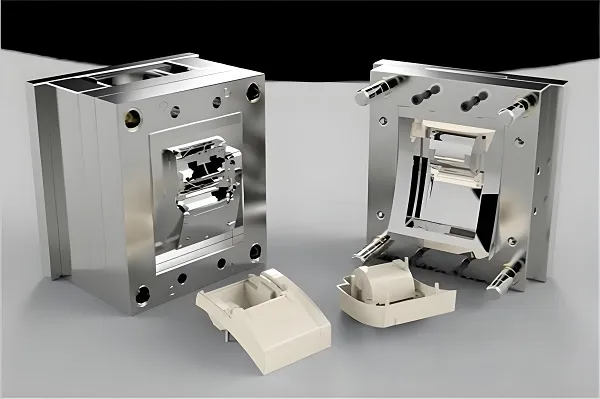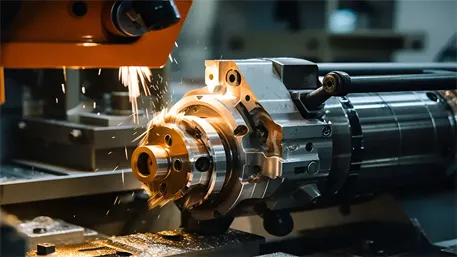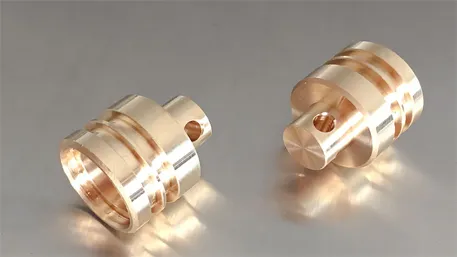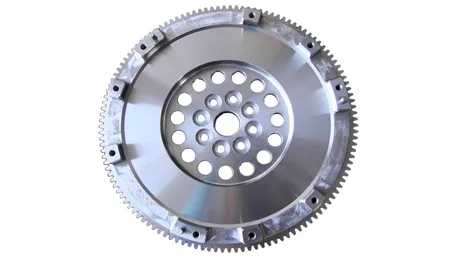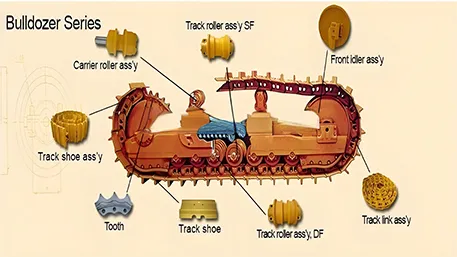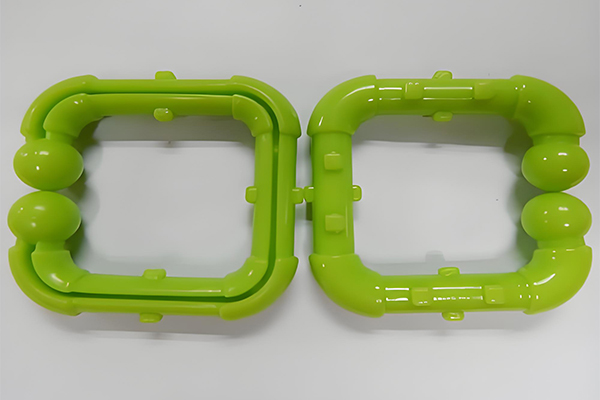Against the backdrop of the modern manufacturing industry’s transformation towards high precision and miniaturization, custom precision injection – molded parts, with their characteristics of precise dimensions, functional integration, and efficient production, have become core components in fields such as electronics, medical, and automotive. This article systematically analyzes the technical logic and industry value of custom precision injection – molded parts from aspects including material selection, process technology, application scenarios, and quality control, providing professional decision – making references for high – end manufacturing enterprises.
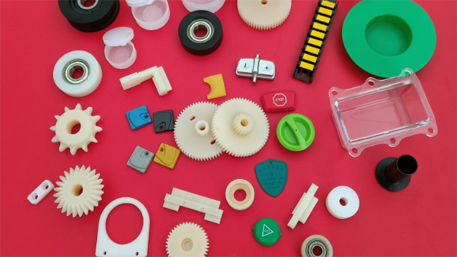
I. Materials Engineering: Precise Matching of High – Performance and High – Fluidity
The materials for custom precision injection – molded parts need to balance mechanical properties, dimensional stability, and injection molding fluidity. The following are the key characteristics and typical applications of commonly used engineering plastics:
Polyoxymethylene (POM)
Characteristics: Tensile strength of 60 – 70 MPa, Rockwell hardness (HRR) of 118 – 122, excellent wear resistance (friction coefficient of 0.1 – 0.3), and low molding shrinkage rate (0.8% – 2.5%).
Applications: Precision gears, miniature bearings, and electronic connectors. Due to its high rigidity and good self – lubrication, it is suitable for high – load and high – precision scenarios.
Liquid Crystal Polymer (LCP)
Characteristics: Tensile strength of 120 – 180 MPa, heat distortion temperature of 260℃ (1.82 MPa), excellent melt fluidity, and low coefficient of linear expansion (1.5×10⁻⁶/℃).
Applications: High – frequency electronic components (such as 5G connectors) and miniature sensor housings, meeting the requirements of high precision and high – temperature resistance.
Polyamide (PA, Nylon)
Characteristics: Tensile strength of 70 – 90 MPa, outstanding oil resistance and fatigue resistance. Its rigidity can be enhanced by glass fiber reinforcement (for example, the tensile strength of 30% GF – PA6 reaches 180 MPa).
Applications: Precision parts for automotive fuel systems and parts of industrial sewing machines, combining strength and wear resistance.
Polycarbonate (PC)
Characteristics: Impact strength as high as 60 – 70 kJ/m², transparency > 90%, and good dimensional stability (molding shrinkage rate of 0.5% – 0.7%).
Applications: Optical lens brackets and transparent parts of medical instruments, meeting the requirements of high light transmittance and high precision.
Thermoplastic Polyurethane (TPU)
Characteristics: Elongation at break of 500% – 800%, a wide range of Shore hardness (Shore A 60 – D 80), and excellent oil and weather resistance.
Applications: Miniature seals and protective sleeves for flexible electronic circuits, suitable for precision scenarios that require elasticity and sealing.
Through precise material selection, the dimensional tolerance of custom precision injection – molded parts can be controlled within ±0.01 mm, meeting the requirements of micron – level precision.
II. Process Technology: The Core of Micron – Level Precision Manufacturing
Mold Flow Analysis and Mold Optimization
Use simulation software such as Moldflow Insight to simulate the melt flow front, pressure distribution, and cooling process, predict and eliminate defects such as flash and shrinkage cavities, and control the warpage deformation of plastic parts within 0.05 mm/m.
The mold design adopts high – precision processing technologies (such as slow – wire cutting and EDM), with the surface roughness of the cavity Ra≤0.1 μm, ensuring the surface finish and dimensional consistency of plastic parts.
Precision Injection Molding Technology
Equip high – precision injection molding machines (repeat positioning accuracy of ±0.001 mm). Through closed – loop control of injection pressure (accuracy of ±1%), temperature (accuracy of ±0.5℃), and injection speed (adjustable from 0.1 – 500 mm/s), ensure the molding accuracy of micro – structures (such as 0.1 mm wall thickness and 0.3 mm aperture).
Micro – injection molding technology (Micro Injection Molding) can produce miniature parts weighing only 0.01 grams, with a dimensional tolerance of ±0.005 mm.
Multi – Component and Insert Injection Molding
Multi – component injection molding (such as 2K injection molding) realizes the combination of hard and soft materials. For example, rigid LCP and flexible TPU are injected in connectors to improve the sealing performance.
Insert injection molding technology embeds precision components such as metal pins and micro – chips into plastic parts to achieve functional integration, with the position accuracy controlled within ±0.02 mm.
III. Application Scenarios: Full – Coverage of High – End Manufacturing
Electronics and Communication
Connectors: High – speed connectors injection – molded with LCP, with low dielectric loss (Df = 0.002), ensure stable 5G signal transmission, and the pin pitch accuracy reaches 0.15 mm.
Sensor Housings: Miniature housings injection – molded with PC or POM protect internal components and provide precise installation interfaces.
Medical Equipment
Minimally Invasive Surgical Instruments: Precision gears and joints injection – molded with PEEK are resistant to chemical sterilization (such as ethylene oxide) and have excellent biocompatibility.
Medical Catheter Accessories: Miniature valves and joints injection – molded with TPU have good flexibility and meet the USP Class VI biosecurity standard.
Automotive Industry
Fuel Injection System Parts: Precision valve cores injection – molded with PA are resistant to gasoline corrosion and dimensionally stable, ensuring the accuracy of fuel injection.
Sensor Components: Miniature brackets injection – molded with PBT can withstand high temperatures of 150℃ and support the precise positioning of automotive sensors.
Aerospace
Miniature Bearing Cages: Light – weight cages injection – molded with POM are wear – resistant and low – noise, suitable for the auxiliary systems of aircraft engines.
Electronic Equipment Housings: Miniature housings injection – molded with PEI can withstand temperatures above 200℃, meeting the harsh environmental requirements of avionics components.
IV. Quality Control: Stringent Standards for Precision Manufacturing
Detection Technologies and Equipment
Coordinate measuring machines (CMM) conduct full – size inspections with an accuracy of ±0.002 mm, meeting the precision – grade tolerance requirements of ISO 2768.
Optical microscopes and laser scanners detect micro – structures (such as 0.05 mm micro – holes) to ensure dimensional and shape consistency.
X – ray detects internal defects (such as bubbles and shrinkage cavities) to ensure the internal quality of plastic parts.
Reliability Tests
Mechanical Property Tests: Tensile, bending, fatigue life (for example, POM gears have no failure after 10⁶ cycles).
Environmental Tests: High – low – temperature cycling (-55℃ to 125℃), salt – spray corrosion (no rust after 500 hours), and chemical media resistance (such as gasoline, acids, and alkalis).
Process Control System
Use SPC (Statistical Process Control) to monitor injection molding parameters in real – time, with a CPK value ≥ 1.33 to ensure process stability.
Establish a traceability system to record the material batches, process parameters, and test data of each batch of plastic parts, realizing full – life – cycle management.
V. Industry Trends and Technological Innovations
Intelligent and Digital Manufacturing
AI algorithms optimize injection molding process parameters, reducing the number of mold trials and shortening the mold development cycle by 40%.
Digital twin technology simulates the production process in real – time, predicting and optimizing the molding quality of precision parts.
Material Innovation and Sustainability
Develop bio – based precision injection – molding materials (such as PLA – LCP composites), reducing environmental impact while maintaining high precision.
Promote recycled engineering plastics (such as rPA, rPOM) for high – end manufacturing scenarios that meet environmental protection requirements.
Integration of Additive Manufacturing and Injection Molding
3D printing technology quickly manufactures the cores of precision injection molds, reducing the mold development time from 6 weeks to 10 days.
Hybrid manufacturing technology combines injection molding with micro – nano processing to achieve the manufacture of precision parts with nano – scale structures.
FAQ
Q1: What is the minimum order quantity for custom precision injection – molded parts?
A: Usually, it is 10,000 – 50,000 pieces, depending on the complexity and precision requirements of the mold. For small – batch customization, it can be achieved through rapid molds or 3D printing technology, with a minimum order quantity as low as 100 pieces.
Q2: How to ensure the dimensional accuracy of precision injection – molded parts?
A: Through high – precision mold design (tolerance of ±0.005 mm), mold flow analysis to optimize process parameters, and CMM full – size inspection, ensure that the dimensional tolerance of plastic parts is controlled within ±0.01 mm.
Q3: Can precision parts with complex internal structures be customized?
A: Yes. Through multi – component injection molding, insert injection molding, and micro – injection molding technologies, complex designs such as micro – holes, thin walls, and special – shaped structures can be realized to meet the requirements of high – end manufacturing.
Q4: What are the surface treatment options for precision injection – molded parts?
A: Common treatments include mirror polishing (Ra≤0.05 μm), electroplating (to enhance conductivity), laser marking (for identification and traceability), etc., which can be customized according to functional requirements.
Consult Now and Get a Professional Customized Solution
If you need to customize high – performance precision injection – molded parts, please feel free to contact us via online message. Our engineering team will:
Recommend suitable engineering plastics (such as LCP, PEEK) according to the application scenario requirements;
Provide a full – process solution from mold flow analysis to precision injection molding to ensure the micron – level precision and functional reliability of the parts;
Strictly follow quality systems such as ISO 9001 and ISO 13485, and provide third – party test reports to ensure product quality and compliance.
Whether it is the high – speed transmission requirements of electronic connectors or the biosecurity requirements of medical devices, based on materials science and supported by precision processes, we create customized solutions for you. Click to leave a message and start your professional customization journey!

